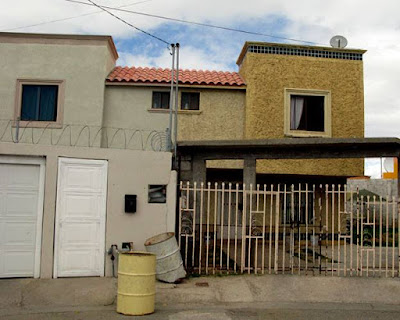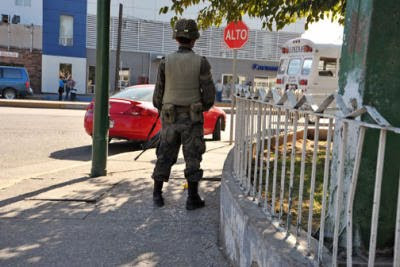From within the deep pages of Borderland Beat
By Buggs for Borderland Beat
A Mexican attorney by the name of Fernando Reyes was looking for a way to cross a load of weed across the border. He wanted to make some real money for himself, he had already set up a buyer on the other side of the border. A man that went by "Lalo" could make it happen for him, Lalo knew all the right contacts.
But Lalo was living a double life. Guillermo Ramirez Peyro, otherwise known as "Lalo," was a paid informant for not only the US Customs, but also had been briefed by the Drug Enforcement Administration (DEA), the Bureau of Alcohol, Firearms and Tobacco, and the FBI. Lalo had lured Fernando to the "House of Death." Lalo was the gate keeper of the "House of Death," a safe house in Ciudad Juarez used to torture and execute people working against the Juarez cartel
 |
| The House of Death - Ciudad Juarez |
Lalo had brought Fernando to this little house in the city of Juarez to go over the deal. Except, Fernando did not know it yet, but he was walking in to a trap. Hiding in one of the rooms were also two Chihuahua state police officers that were on the payroll of the Juarez cartel.
Fernando was unaware, but they were there to kill him.
As Fernando was talking to Lalo, one of the police officers came out of one of the rooms and put the barrel of a gun to his face. Fernando pleaded for his life, he knew he was in trouble. He had known all along that his attempt to smuggle dope into the US from Juarez was a huge safety risk, and the outcome was never pretty. The Juarez cartel did not tolerate anyone setting up shop in their plaza. They decide not to use the gun, it was too loud. They could not take any chances.
This house was located in a middle-class neighborhood and people will call the police if they heard gunshots.
Fernando started to scream in panic.
 |
| "Lalo" |
They taped his mouth shut in attempts to stifle the loud screams. Fernando fought back, kicking and swinging his arm, so they took him down to the ground. But it was not easy, Fernando was fighting for his life. Lalo had to step in to help restrain Fernando while one of the officers wrapped an extension chord around his neck. Fernando knew his death was imminent but he continued to fight. He did not want to die like this, but it was futile. He finally laid there motionless, his life had been snuffed from him. Lalo had tape-recorded the execution and later, had handed over the recording to US agents of US Customs along with a debriefing.
The Mexican Chihuahua state police officers split $2,000 US dollars for killing an inspiring drug trafficker known as Fernando.
Fernando was out of the way and now they had his dope. Heriberto Santillan-Tabares (a top lieutenant for the powerful Juarez cartel organization) congratulated Lalo. He had done good. Santillan told Lalo that Vicente Carrillo Fuentes will be very happy.
 |
| Buggs Interviewed Lalo |










































